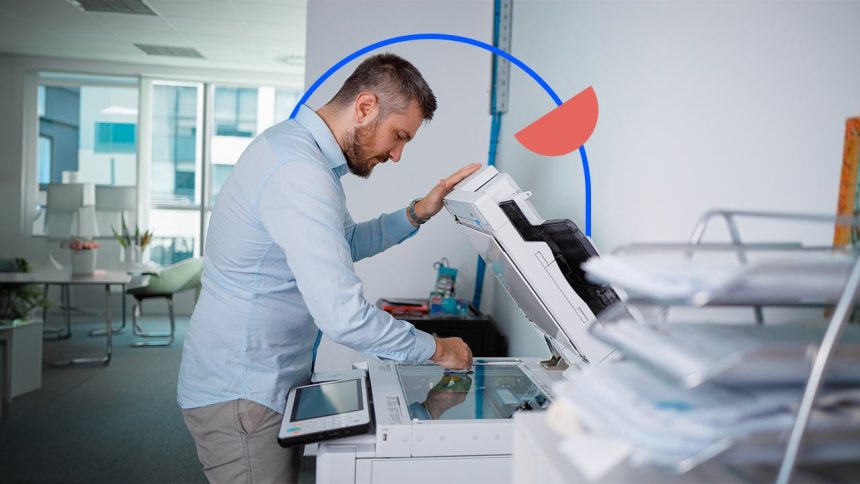Key takeaways
- Equipment loans can be used for large assets that could strain cash reserves
- If you fail to pay your equipment loan on time, the lender may seize the asset to recoup their loss
- Equipment loans often have a higher payment than an equipment lease but allow you to own the asset outright at the end of the loan term
For many business owners, buying equipment is an important part of owning and running a business. But depending on the machinery you need, it can cost tens or even hundreds of thousands of dollars.
Equipment loans can help bridge the gap and are specifically designed to help businesses purchase equipment. It uses the equipment itself as collateral for the loan, making it less risky for the lender and lowering upfront costs. Equipment loans also tend to have lenient eligibility requirements than other loans because of the built-in collateral. Businesses may qualify with less-than-perfect credit or little time in business.
According to the Federal Reserve Banks’ 2023 Small Business Credit Survey, 13 percent of small business loan applications in 2023 were for auto or equipment loans, with 73 percent of those applications fully approved. While equipment loans can help companies purchase essential machinery or equipment, it’s important to consider the pros and cons of equipment loans before signing on the dotted line.
Compare the pros and cons of equipment loans
Pros
- Easily available
- Fast funding
- No need for additional collateral
- Offers flexible financing
- Build credit
Cons
- Limited to financing equipment
- May require a down payment
- Loan could outlast life of equipment
Pros of equipment loans
If you need to acquire equipment for your business, there are lots of pros to using an equipment loan.
Easily available
Equipment loans are a common type of loan that you can get from many banks or lenders. It tends to offer lenient eligibility requirements, making them easy to obtain, even if your business is a startup or you don’t have great credit. You can also get an equipment loan for different types of equipment regardless of the industry your business is in.
Fast funding
Many lenders offer relatively quick funding for equipment loans, especially if you go with an online lender. You may be able to receive funds in as little as 24 hours.
No need for additional collateral
With an equipment loan, your company does not need additional assets to secure the loan. The equipment you buy serves as collateral.
Offers flexible financing
Equipment financing saves you from having to tie up large sums of cash purchasing equipment. With a loan, you spread the cost over the life of the loan, which can be anywhere from three and 10 years. The longer the repayment term, the more interest you pay overall. But longer terms can make payments more affordable each month.
Bankrate insight
Equipment leasing is a common alternative to equipment financing. It involves renting the equipment from the leasing company for a specific term. Leasing can be beneficial because it often comes with a lower monthly payment and lower or no down payment. However, you won’t own the equipment at the end of the lease unless the lease comes with an equipment buyout option.
Build credit
Getting any kind of loan can help your company build credit, but an equipment loan is one of the easier ways to start building credit. They’re usually easy to qualify for, even if your company has no operating history. Just be sure to check that the lender reports your loan activity to the credit bureaus and check whether they report to personal or business credit bureaus.
Cons of equipment financing
Before getting an equipment loan, you have to consider the drawbacks before applying.
Limited to financing equipment
Equipment financing is limited in use. You can only use it to purchase, lease or repair equipment and only equipment that the lender agrees is adequate to serve as collateral. You’ll need other types of loans for other purposes.
May require down payments
Many equipment loans require a down payment of as much as 20 percent of the equipment’s cost. If you’re buying something expensive, you might need a lot of cash, or you may have to look into leasing if you can’t afford a sizable down payment.
Loan could outlast the life of equipment
There’s a chance, especially if you get a long-term loan, that the loan will outlast the equipment you purchase. For example, if you get a 15-year loan, but the equipment breaks after ten years, you’re stuck with five years of payments for something you can’t use anymore.
Even if it doesn’t break, it may still wear out, become less useful, or become obsolete. You need to make sure anything you buy with a long-term loan will last for a long time.
How to determine if an equipment loan is right for you?
An equipment loan makes sense for your business if you need to finance equipment and are looking for low overall loan costs. Because the loan is backed by the equipment, you need to be willing to use the equipment as collateral.
If you don’t want to use the equipment as collateral, you may be better off with other business loans, like an unsecured term loan. For very small equipment purchases, you may be able to use a business line of credit instead. But if you don’t have great credit, such as a 500 personal credit score, you might look into alternative financing, like a merchant cash advance.
Should you finance equipment?
Whether you finance your equipment purchase depends on how much capital your business has and how much you’re willing to give up for equipment purchases.
Many businesses use an equipment loan to help them keep capital and cash flow within their business, paying off the equipment in small increments. But if you have plenty of capital, you could save money on interest by buying the equipment outright.
Bottom line
Equipment financing is flexible and widely available, even for startups and businesses needing bad credit financing. Shop around to compare equipment loans from a few sources to ensure you get the best rate and lowest fees. You can also compare equipment loans with other top loans on the market to make sure you’re choosing the best option.
Frequently asked questions about equipment financing
-
One of the benefits of equipment financing is that it’s easier to qualify for than other loans. Each lender will set its own minimum credit score requirements, but a minimum personal credit score of 575 or 600 isn’t unusual. Keep in mind that a credit score is just one factor lenders consider. They’ll also examine your revenue, operating history, down payment, and other factors.
-
You can finance almost any equipment for a business, from heavy equipment to storage tools to IT systems. Examples include cranes, excavators, trucks, servers, software, computers, food packaging tools, industrial coolers and box makers.
-
Equipment loans typically are not hard to get. You can qualify for one with moderate credit and a sufficient down payment, even if you’re running a startup.
Read the full article here
















